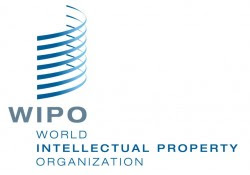African Leaders Launch High-Level Conference On Intellectual Property
|
|
|
Mauritius
President Ameenah Gurib-Fakim and Senegal Prime Minister Mahammed Boun
Abdallah Dionne joined World Intellectual Property Organization (WIPO)
Director General Francis Gurry (http://www.wipo.int) in
stressing the importance of intellectual property (IP) in incentivizing
innovation and creativity to promote economic and social development across
Africa.
Some 50 government ministers from across the continent attended the November 3 opening of the three-day “African Ministerial Conference 2015: Intellectual Property (IP) for an Emerging Africa,” held in the Senegalese capital, Dakar (http://www.wipo.int/meetings/en/2015/african_ministerial_conference.html). “Ultimately, the source of all innovation and creativity is human,” said Mr. Gurry in welcoming the delegates. “And Africa is the cradle of humanity, so it is in this sense the origin of all innovation and creativity that characterizes our species as human beings.” Well-developed national intellectual property systems can help African countries unlock their citizens’ creativity and innovation, boosting economic growth, he said. “Intellectual property is a necessary, but not a sufficient, condition of a healthy and vibrant innovation ecosystem,” he added. “It is a means of capturing a competitive advantage that is conferred by innovation and it is a means of rewarding investment, human and financial resources, in the generation of new knowledge and innovation.” Mauritius President Gurib-Fakim cited positive economic growth prospects for African countries over the next decade and highlighted the “imperative need for Africa to protect IP rights in order to build sustainable knowledge economies by leveraging the benefits of science, technology and innovation.” “In this globally fiercely competitive international economic landscape, the creation and management including protection of knowledge will be central to building and spearheading wealth creation and integration in the global economy,” said President Gurib-Fakim. She said policies should include IP system tools to unlock and promote the value of assets that are unique to Africa, such as local medicinal plants and traditional knowledge. Africa, she said, should also “strive to prioritize opportunities unleashed by the digital revolution in the areas of science, technology, innovation and creativity. “There is urgency for public policy debate, coordination, integration and the involvement of all stakeholders in order to frame new ways to foster the development of intangibles and to promote innovation and creativity,” she said, “innovation is by construction and not instruction.” Noting that the protection of IP rights should be accompanied by adequate measures of incentives and support, President Gurib-Fakim called for the setting up of a fund for African innovators to access the necessary capital to support start-ups. To applause, President Gurib-Fakim concluded: “Those nations that go all-in on innovation today will own the global economy tomorrow.” Senegalese Prime Minister Dionne called the conference timely, due to the challenges facing Africa. He added that intellectual property can help ensure sustainable and inclusive development resulting in poverty reduction and increased economic competitivity. “Innovation is the basis of all development,” he said. Martial De-Paul Ikounga, Commissioner for Human Resources, Science and Technology of the African Union, a conference organizer, said: “It’s the role of intellectual property organizations in Africa to push African leaders to understand that there is an entire edifice to build that will allow our youth to cross the Rubicon - to break the glass ceiling and partake in the excitement of the of the inventor, to dare to become the first in their country, in the region and even the first in the world to propose a solution to a social ill.” Takashi Kitahara, Ambassador of Japan to Senegal, Embassy of Japan in Senegal, said that “it is essential to assure the appropriate protections via the intellectual property system and guarantee its strategic use. “The government of Japan was a co-organizer of the conference. The opening ceremony was followed by a high level segment on “Africa in a Knowledge-Based Economy-Challenges and Opportunities.” The Dakar meeting brought together over 400 participants, including some 50 ministers responsible for intellectual property, trade and culture as well as private sector groups to chart a plan for boosting the uptake of intellectual property tools to help stimulate economic and social development across Africa. The ministerial meeting was preceded on November 2, 2015 by a workshop bringing together some 50 young African innovators and creators to talk about IP, innovation and creativity.
Intellectual property refers to creations of the mind,
such as inventions; literary and artistic works; designs; and symbols, names
and images used in commerce. IP is protected in law by, for example, patents,
copyright and trademarks, which enable people to earn recognition or
financial benefit from what they invent or create. By striking the right
balance between the interests of innovators and the wider public interest,
the IP system aims to foster an environment in which creativity and
innovation can flourish.
There is increasing recognition in the global
knowledge-based economy that IP and innovation are two important contributory
factors for economic, social and cultural development, better competitiveness
of industries as well as enhanced trade.
African nations are embracing the knowledge-based economy
in order to access the opportunities it offers for poverty reduction,
enhanced agricultural productivity, as well as the prospects for industrial
competitivity, which could pave the way for sustainable and inclusive
development.
The conference (http://www.wipo.int/meetings/en/doc_details.jsp?doc_id=309436) aims
to highlight the relevance of IP in promoting innovation and scientific and
technological transformation of African economies. It will also show how IP
can contribute to the realization of the priorities identified in the Common
African Position (CAP) on the Post-2015 Development Agenda. And it will
provide an arena for discussion on the role of IP for innovation and
creativity in the continent.
|


Comments
Post a Comment